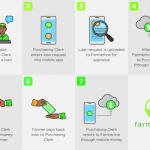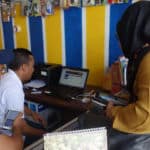Making Agritech Work for Smallholders: What Tech Companies Can Learn from Development Organizations
In recent years, the world of agritech has seen a plethora of innovations that are geared towards improving the lives and livelihoods of smallholder farmers. Of the estimated 2 billion people living on less than 2 dollars a day, roughly 500 million people are classified as smallholder farmers. Smallholder farmers typically cultivate less than 2 acres and mainly focus on subsistence farming, meaning that they predominantly grow crops for their own consumption with little or no surplus to trade. With the exponential penetration of mobile technology in developing countries, proponents of agritech argue that technological solutions can help smallholder farmers scale their farming practices by improving yields and connecting to larger supply chains.
Yet despite the multitude of “ICT for development” companies and projects, smallholder farmers do not seem to prosper. They remain unable to take full advantage of the tech solutions provided to them, and as a result, these solutions fall short of their envisioned impacts and outcomes. This raises questions around the potential of technology-driven solutions that aim to help smallholder farmers. This article unpacks the assumptions behind some of these solutions, in an effort to understand their limitations and opportunities.
Inclusive ICT4D
The primary challenges smallholder farmers face in their potential inclusion into food supply chains are low yields and access to markets. Low yields primarily stem from a lack of access to funding for quality farming inputs (e.g. seeds, fertilizers and pesticides) and a lack of training and knowledge in farming practices. But even if farmers have harvest surplus, their remote habitation in combination with limited means of transportation and access to market price information make it difficult to access markets where they could sell their produce.
In recent years we have seen many different innovative solutions that try to address some of these challenges. Mobile wallets, alternative credit rating algorithms, peer-to-peer learning, SMS-based market price information and many more are notable examples. The companies behind these innovations, often built on inclusive business models, aim to solve for specific issues they have identified that smallholder farmers face. Although these solutions are well-intended, the majority of them are underpinned by the core assumption that challenges faced by smallholder farmers can be designed for in isolation from one another, thereby negating the relationship between the different challenges.
Tech Startup methodologies vs. Time-Honored Techniques
Taking a closer look at the companies behind these solutions, it is not entirely surprising that many of them decide to try and solve for one specific problem confronting smallholder farmers. Nowadays, the creation of new software solutions often involves a combination of design thinking with agile development. These methodologies are built on the premise of “rapid iterations,” in which development, testing and refinement follow each other in short intervals. As a result, companies are able to identify areas of improvement for their product at an early stage in the design process. This is especially useful for startups and companies with limited means for research and development, which need to show progress from an early stage. Although these methodologies have proven successful for many tech startups, they tend to push companies to design for one specific problem and incrementally build up the product from there. The result is that agritech companies often create a technology for a specific challenge faced by smallholder farmers, in order to make the process of designing that solution more manageable for the company.
While jumping right into product design has its benefits, efforts to support smallholder farmers have a long lineage and literature in the developing world. For many years, both development organizations and companies that pursue ethical farming practices have been working on integrating smallholder farmers into food supply chains. Through the setup of local initiatives such as aggregators (local companies that source from large groups of smallholder farmers) and cooperatives, they aim to help farmers by increasing their productivity and providing access to markets. These organizations engage with smallholder farmers through extension officers, who are often agronomists deployed in rural areas to locate and recruit farmers to partake in the programmes offered by the organization. In many cases, extension officers work together with local government officials to identify farmers and launch these programmes. They then set up local hubs from where they distribute farming inputs, provide group training to farmers that are enrolled in the programme, purchase harvests from farmers, and store them for distribution to processing plants. Through many years of experience, these development organizations have learned that smallholder farmers require extensive guidance and support on multiple fronts in order to break away from the poverty trap they are in. These combined efforts are important and form the basis of a larger pool of knowledge.
However, it quickly becomes apparent that the approach taken by development organizations is very operational and labor intensive, which forms a major constraint for the scalability of these programs.
The Challenge Ahead
In recent years, technology has proven to be able to address previously perceived limitations around scalability. And it is exactly for this reason that many agritech companies see an opportunity to design solutions for smallholder farmers. Their thinking is strengthened by the fact that increasingly more smallholder farmers have access to mobile phones.
Agritech does have the potential to contribute to addressing the plight of smallholder farmers. However, in their design, it is imperative that entrepreneurs and technologists learn from and build on the large amounts of work that has been done by development organizations. Instead of trying to design for the different challenges faced by smallholder farmers in isolation, it is necessary that these solutions seek to both improve smallholder farmer yield and access to markets in tandem. Designing a solution that aims to solve for such different challenges will not prove to be an easy task, but it’s necessary if tech firms want to create meaningful impact on smallholder farmers’ lives. Collaborations between these tech companies and the long-standing development agents could provide a productive platform for truly transformational change.
Wouter Vink is a Project Manager at GreenFingers Mobile.
Photo provided by the author. The farmer pictured grows chilies for an international restaurant chain.
- Categories
- Agriculture, Social Enterprise, Technology



